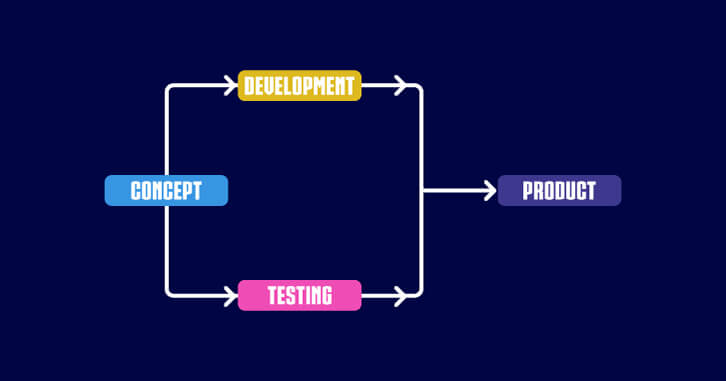Software testing is the process of checking software applications and products for bugs and errors to ensure their performance is efficient. Testing in software engineering is a fundamental process of creating reliable—and usable—software products.
What Are the Benefits of Software Testing?
Software testing is needed because any bugs or errors in the software can be identified early and solved before the software product is delivered. Properly tested software ensures reliability, security and high performance, which further results in time-saving, cost-effectiveness and customer satisfaction. Software bugs could be expensive or even dangerous and can potentially cause monetary and human loss. Examples include:
- TikTok glitch resets followers to zero - On May 3, 2021, when TikTok users logged on to the app, the last thing they expected to see was all their users gone. But this is exactly what happened. TikTok experienced a glitch that displayed the wrong followers/following count. Some users even had trouble accessing the app, with the app blocking their accounts. TikTok confirmed the glitch, letting their users know that they were working on resolving the issue. The glitch was resolved overnight; however, a company with a large user base cannot let software bugs slip through. Glitches like this can easily be prevented with software testing.
- NHS 4-hour outage leaves passengers stranded - In October 2021, England’s National Health Service (NHS) experienced an outage that lasted approximately four hours. And it wasn’t just the application having issues, but their website too. The outage meant that people could not prove their COVID vaccination status which caused frustration, to say the least. Because the NHS system was down for hours, many British passengers were stranded at airports. Some could not board their flights, while others suffered delays. Although the app was back online after four hours, the NHS outage highlighted the problems of a single centralized system.
- In April 2015, the Bloomberg terminal in London crashed due to a software glitch that affected more than 300,000 traders on financial markets. It forced the government to postpone a 3bn pound debt sale.
- Nissan cars recalled over 1 million from the market due to software failure in the airbag sensory detectors. There have been reported two accidents due to this software failure.
- Starbucks was forced to close about 60 percent of stores in the U.S. and Canada due to software failure in its POS system. At one point, the store served coffee for free as they could not process the transaction.
- Some of Amazon’s third-party retailers saw their product price reduced to 1p due to a software glitch. They were left with heavy losses.
- In 2015, the fighter plane F-35 fell victim to a software bug, making it unable to detect targets correctly.
- China Airlines Airbus A300 crashed due to a software bug on April 26, 1994, killing 264 innocent lives.
- In 1985, Canada’s Therac-25 radiation therapy machine malfunctioned due to a software bug and delivered lethal radiation doses to patients, leaving three people dead and critically injuring three others.
- In April of 1999, a software bug caused the failure of a $1.2 billion military satellite launch, the costliest accident in history.
- In May of 1996, a software bug caused the bank accounts of 823 customers of a major U.S. bank to be credited with 920 million US dollars.
Let’s list the benefits of Software Testing:
- Cost-Effective: It is one of the important advantages of software testing. Testing any IT project on time helps you save money in the long term. In case the bugs are caught in the earlier stage of software testing, it costs less to fix.

- Security: It is the most vulnerable and sensitive benefit of software testing. People are looking for trusted products. It helps in removing risks and problems earlier.

- Product quality: It is an essential requirement of any software product. Testing ensures a quality product is delivered to customers. Regardless of how competent software developers and engineers may be, the possibility of glitches and bugs is always present in untested software. Testing will improve product functioning as hidden errors will be exposed and fixed.
- To gain customer confidence: Software testing ensures the software is user-friendly. That makes it capable of being used by its intended customers. Those who specialize in software application testing are familiar with the needs of customers, and unless software can satisfy a customer’s needs, it would be a practically useless investment. UI/UX Testing ensures the best user experience.

- To accelerate software development: If run in parallel, software testing and software development can accelerate the software development process and make it more efficient. Staging the design process to ensure that both software testing and software development are happening simultaneously takes care to avoid such pitfalls in software development.

- To optimize business: Essentially, every software developer’s goal is customer retention and every customer’s goal is finding a reliable service worth their money. Providing effective software, thus, allows a business to become entrenched in a software provider’s reputation.

Summary
It’s perfectly ordinary to find bugs and errors in software. In the software testing stage, they harm no one. Leaving them unaddressed can, however, lead to serious issues for all parties involved in software design.
By taking the route of testing in software engineering, software becomes as error-free as it can be. The user experience is enhanced, and maintenance costs are also cut down.
The earlier software testing is done and the more thoroughly performed, the better it is for developers and users alike, leading to a win-win outcome that’s smarter and more profitable in the long run.
Thanks for reading the post!






